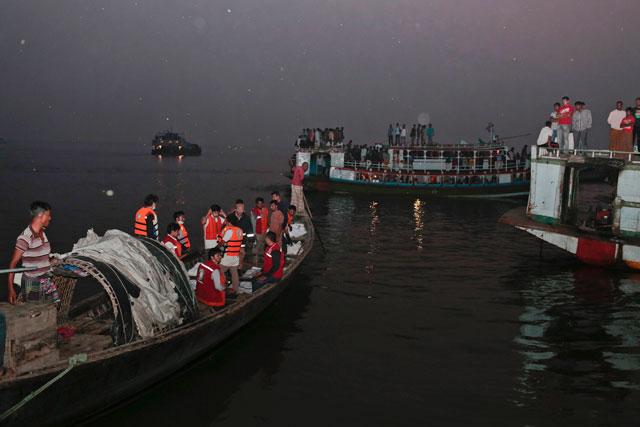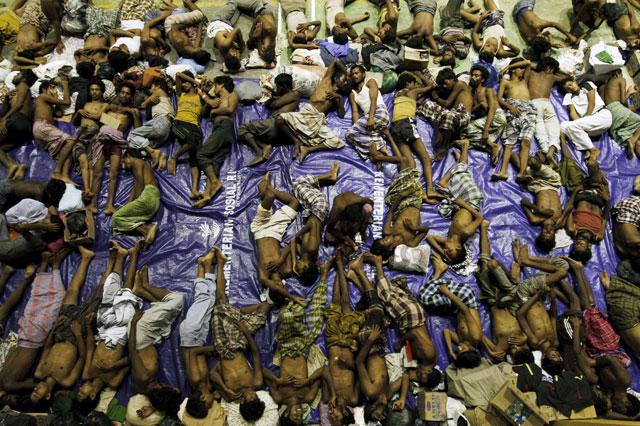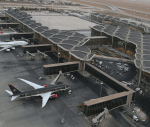You are here
After shipwreck, refugee finds despair in Europe
By AP - Oct 11,2014 - Last updated at Oct 11,2014
LUEBECK, Germany — It has been a year since the ship went down, and still the memories torment the Syrian refugee:
The father flailing in choppy seas grabbing a life jacket away from his little son;
The silence after the drowning children stopped screaming;
Young girls, face down in the water, long hair floating around their heads;
The dead baby he nearly bumped into as he swam for his life.
"Again and again, I relive those hours in the ocean after our ship sank," says Mohammad Suleimane, 25. He has to fold himself — pressing his skinny arms hard against his lap — to stop the shaking.
The young barber from Damascus was the only one of 13 family members to survive when his boat sank, killing more than 200 refugees a year ago Saturday, an anniversary that comes as Europe faces a new wave of migrants making the perilous crossing from North Africa to the Italian island of Lampedusa.
The path to Europe is the world's most dangerous "irregular" migration route, according to the International Organisation for Migration. At least 22,000 people have died on that journey since 2000, it says, including at least 3,072 in the first nine months of this year. Those are only the ones it knows about; the true number, it says, is much higher.
Despite the dangers, the number of refugees risking the journey is growing, as war, poverty and environmental crisis drive people from places such as Syria, Gaza, Eritrea and Sudan. The most common route is through Libya, and then onto smugglers' boats to cross 300 kilometres of the Mediterranean to the nearest piece of Europe — the Italian island of Lampedusa.
Suleimane followed that route. His family flew from Damascus to Cairo, then paid a smuggler to take them on a minibus to Benghazi, Libya. A few months later they had saved up $2,000 for Suleimane's trip, and he joined several hundred other Syrians in a desert hideout, waiting for the right moment to set off.
His parents and siblings couldn't afford their own passage yet, but with him were 12 aunts, uncles and cousins — including Ali and Duaa, who weeks earlier had married in a joyous wedding filled with laughter and dancing.
Suleimane had bought a new pair of jeans for that wedding — and when the group set off he was wearing them again.
When the ship went down, he swam as others sank. He swam for hours, until a Maltese boat plucked him from the sea. He was sent to prison with the other survivors.
Suleimane was transferred to a Maltese refugee camp within a week, and says he bought a forged German ID in the name of Daniel Fischer for 180 euros ($230). With it, he got to Milan, where he paid traffickers 350 euros to drive him on back roads across the Alps to Munich, Germany.
From there, he boarded a train to Berlin, and was taken in by relatives who have been living in Germany for decades.
He was still wearing his jeans, and would continue to for months — frayed mementos of joy and tragedy. They were the only palpable memory he had of happier times, even as they reminded him of the horror as well.
In Berlin, Suleimane withdrew into himself, hardly ever talking. Worried, his cousin took him to two psychologists. One wrote in his evaluation that the young man was "suicidal, suffering from post-traumatic stress disorder and should under no circumstances be separated from his relatives."
But Germany, facing a steep surge in asylum applications, has strict rules — and did exactly that.
Suleimane was prescribed antidepressants and sent to a refugee centre in Luebeck, three hours north of Berlin on the Baltic Sea.
At the centre, Suleimane smokes three packs of cigarettes a day and barely eats. His big brown eyes are set deep in his gaunt face. He is obsessed with the sea, and spends days gazing out at the Baltic, haunted by his memories.
He fled Syria to escape the civil war, after being drafted to fight for President Bashar Assad's army. Sometimes he thinks, "it may have been better to simply die in Syria".
The memories of home are so strong that in his mind he can smell the lamb shawarma and taste the sweet baklava.
Suleimane, who shares a wooden cabin with five or six other refugees, spends hours lying in bed and staring at the TV, even though he barely understands German.
Recently, a glimmer of light entered Suleimane's life. His parents, little brother and five little sisters made it to Germany, traveling the same perilous route that he took a year ago. An Italian ship rescued them from their rickety boat.
Now Suleimane is slowly gathering the will to move on. He hopes to win his asylum case, maybe open up a barbershop in Berlin.
Recently, he folded the jeans and put them away in the back of his closet.
Related Articles
An overcrowded ferry sank in a Bangladesh river on Sunday leaving at least 41 people including 11 children dead as rescuers searched for missing passengers, officials said.
Nearly 2,000 boat people from Myanmar and Bangladesh have been rescued or swam to shore in Malaysia and Indonesia, authorities said Monday, warning that still more desperate migrants could be in peril at sea.
ATHENS — Five migrants died early Saturday when a migrant boat sank off Crete, Greece's coastguard said, leaving 40 people reportedly missin


















